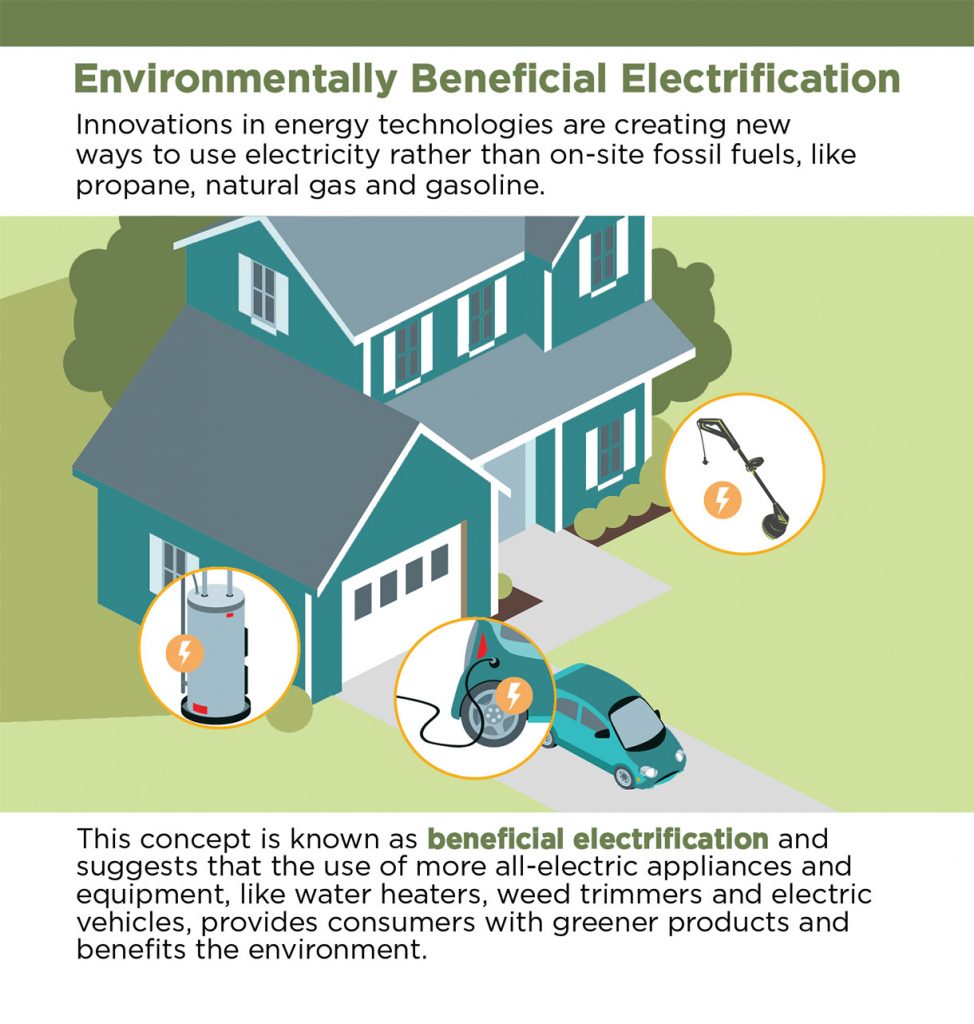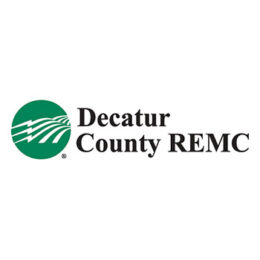by Rachel Sullivan
 If you are like many Americans, when given the choice, you would prefer your energy come from renewable sources such as solar or wind power rather than fossil fuels. As electric utilities shift to more options that include renewable energy sources and make existing generation technologies cleaner, electricity uses less fossil fuel per kilowatt-hour of energy produced. This idea of “environmentally beneficial electrification” means that innovations in energy technology are creating new ways to use electricity instead of on-site fossil fuels such as propane, natural gas and fuel oil.
If you are like many Americans, when given the choice, you would prefer your energy come from renewable sources such as solar or wind power rather than fossil fuels. As electric utilities shift to more options that include renewable energy sources and make existing generation technologies cleaner, electricity uses less fossil fuel per kilowatt-hour of energy produced. This idea of “environmentally beneficial electrification” means that innovations in energy technology are creating new ways to use electricity instead of on-site fossil fuels such as propane, natural gas and fuel oil.
In addition to the utility industry, environmental groups, such as the Natural Resources Defense Council (NRDC), recognize the value of this concept. Sheryl Carter, co-director of NRDC’s Energy Program, commented, “Beneficial electrification will continue to play a big role in accelerating this transition in an effective and economic way, to the benefit of consumers, energy resilience and the environment.”
Electric appliances can become greener
As a practical matter, beneficial electrification means that electric appliances, like your water heater, clothes dryer and oven have the potential to become greener over time. When your electric co-op takes advantage of advances in technology and the market at the generation point, it means those efficiencies are inherently passed along to you, the co-op member.
Because large appliances have a typical lifespan of 15 to 20 years, it means that you are able to benefit from the flexibility of the grid in addition to the increased efficiency of the particular appliance. In other words, the high-efficiency electric oven you have today could be powered by renewable sources three years from now. This would not be the case with gas appliances where you are essentially locked into the technology of that gas appliance for the 15 to 20 year lifespan. As your co-op is able to tap into more renewable options in the future, the only way you would be able to benefit from this trend is through an electric appliance.
Small steps to reducing carbon footprint
For consumers and homeowners looking for more environmentally-friendly energy options, choosing electric appliances over those powered by fossil fuels is an easy solution. Whether through electric lawn mowers, blowers and weed whackers (plug-in or rechargeable) or through electric water heaters and other appliances, beneficial electrification is a means to reducing greenhouse gases and helping the environment.
At the national level, electric co-ops across the country are purchasing and generating more renewable resources, bringing wind, solar and geothermal energy into the electric power system, which means electricity is becoming greener. As the overall energy sector continues to evolve, Decatur County REMC is striving to take advantage of the advances in technology and the opportunities of the market as they become available. This means we can leverage the flexibility of the grid to offer a wider range of renewable power choices as we continue to deliver safe, reliable and affordable power to our community.
Look for ways to choose beneficial electrification in the future. As NRDC’s Carter observed, “The successful transition to a clean energy future will require substantial reliance on efficient electric technologies like electric vehicles and advanced electric water heating, including heat pump or grid-interactive resistance water heaters, powered by an increasingly cleaner and more flexible electric system.”
Decatur County REMC currently offers incentive rebates for choosing beneficial electrification options such as heat pump water heaters and geothermal heat pumps. Contact us to learn more.
RACHEL SULLIVAN is the corporate relations manager at Decatur County REMC.



